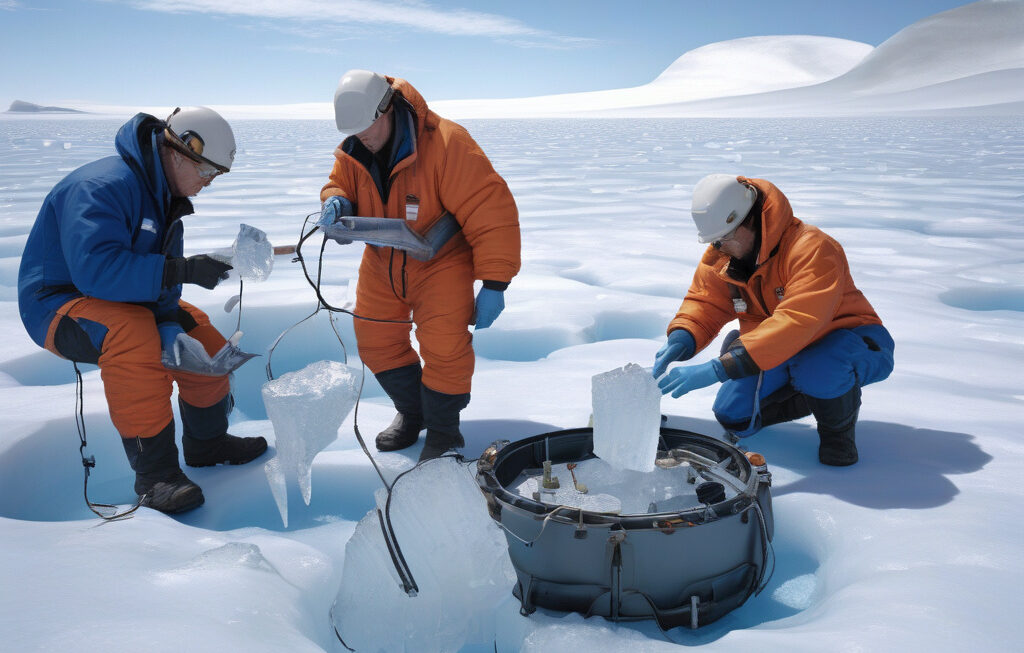Antarctic Sea Ice Emerges as Key Predictor of Accelerated Global Warming
A groundbreaking study has recently unveiled a crucial and previously underestimated link between Antarctic sea ice, cloud cover, and the phenomenon of global warming. The research, which has been making waves in scientific circles, sheds light on how the dynamics of sea ice in the Antarctic region could play a significant role in accelerating the pace of climate change on a global scale.
Published on Innovation News Network, the study highlights the intricate relationship between Antarctic sea ice levels and their impact on cloud formation. Cloud cover, in turn, has a profound effect on the Earth’s energy balance, influencing the planet’s overall temperature regulation. The findings suggest that as Antarctic sea ice diminishes, it leads to a reduction in cloud cover, thereby allowing more sunlight to reach the Earth’s surface. This increased solar radiation absorption contributes to the warming of the planet, exacerbating the effects of global warming.
The implications of this study are far-reaching and underscore the interconnected nature of Earth’s climate systems. While the Arctic region has long been at the forefront of discussions on climate change due to its rapid ice melt, the Antarctic’s role in driving global warming has often been overlooked. This research brings to light the critical importance of considering both polar regions in climate change mitigation efforts.
One of the key takeaways from the study is the need for enhanced monitoring and analysis of Antarctic sea ice levels. By closely tracking changes in sea ice extent and thickness, scientists can better predict shifts in cloud cover and their subsequent impact on global temperatures. This proactive approach is vital in developing strategies to mitigate the escalating effects of climate change and limit its detrimental consequences on the planet.
Furthermore, the study underscores the complex feedback loops that exist within the Earth’s climate system. As Antarctic sea ice continues to decline, it sets off a chain reaction of events that further amplify global warming. Understanding these feedback mechanisms is crucial in formulating effective climate policies and interventions that address the root causes of environmental degradation.
In light of these findings, there is a growing urgency for concerted global action to curb greenhouse gas emissions and limit the rise in global temperatures. The study serves as a stark reminder of the pressing need to prioritize sustainability and environmental stewardship in all aspects of society, from policymaking to individual lifestyle choices.
As we navigate the challenges of a rapidly changing climate, studies like these provide valuable insights that can inform evidence-based decision-making and drive innovation in climate science. By recognizing the pivotal role of Antarctic sea ice as a predictor of accelerated global warming, we can take meaningful steps towards building a more resilient and sustainable future for generations to come.
#AntarcticSeaIce, #GlobalWarming, #ClimateChange, #EnvironmentalScience, #Sustainability












